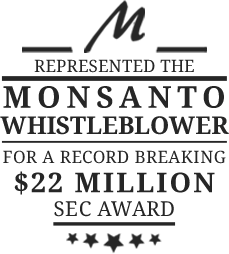








Adverse Actions in Whistleblowing
When people become aware of schemes, fraud, and misconduct within the financial markets and securities industries, they can find themselves in a difficult position.
Reporting their information to the U.S. Securities and Exchange Commission (SEC) or internally could result in retaliation if their identity becomes known. These SEC whistleblowers put themselves at risk for adverse actions just for being courageous and coming forward.
But it’s this very risk of retaliation that often prevents would-be whistleblowers from coming forward and reporting their tips. Below, we go into further detail about some of the adverse actions in whistleblowing and what options are available to you if you do become a victim of retaliation.
Retaliation for Blowing the Whistle
Although anyone can become a whistleblower, more often than not, the people who work for the companies that engage in securities schemes are the ones who come forward. When they see something wrong or illegal, most people will know that the right thing to do is stand up and do something about it.
But when you could face adverse actions from your employer, you might be hesitant to come forward. But while retaliation does happen, remember that it’s illegal.
Some of the most common types of retaliation whistleblowers endure after reporting their tips to the SEC or their company’s internal compliance program include the following:
- Termination
- Demotion
- Suspension
- Harassment
- Intimidation
- A hostile work environment
- Discrimination
Because the risk of retaliation is so high, the SEC has created a program to award whistleblowers for their efforts and bravery in coming forward. To win a whistleblower award, the whistleblower will need to meet very specific requirements, including the following:
- Provide original information.
- Provide information voluntarily.
- Provide valuable information.
- The SEC must be able to impose sanctions.
- The SEC must recover sanctions of more than $1 million.
If you meet each of the above criteria when you blow the whistle, you could win anywhere between 10 and 30 percent of anything the SEC is able to recover through the course of their investigation.
Consequences for Retaliation in Whistleblowing
Several laws, including the Dodd-Frank Act, prohibit retaliation against whistleblowers and offer whistleblowers legal protection from retaliation. You can seek justice for retaliation in a couple of ways.
First, you can inform the SEC of what you’ve been subjected to. The SEC may impose additional sanctions against the violating company or offending employees.
Second, you can take legal action of your own, seeking compensation or action for a variety of damages like your financial losses, double back pay, reinstatement to your former position, emotional distress, and reputational damage.
After closely examining the specific details of your case, your whistleblower lawyer can help you figure out what your next steps should be.
Get Help with Adverse Actions in Whistleblowing
If you have been retaliated against after becoming an SEC whistleblower, you can get justice with the help of a respected lawyer at Meissner Associates. To schedule your free, confidential tip evaluation, give our office a call at 1-866-764-3100 or complete the quick contact form below.
